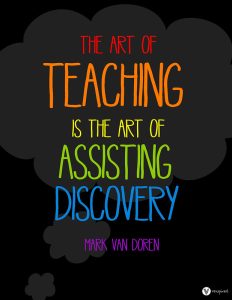Teaching and learning in the age of AI is fascinating for both teachers and students. Both can largely benefit from this phenomenon, making their journeys much more efficient.  Of course, we all know when AI can backfire, and to be frank, as an ESL teacher, I think it backfires when irresponsibility creeps in on both ends. This blog post, however, isn’t focused on this issue. Instead, I’m going to focus on those who are responsible and committed to learning. I’d like to share my opinion and my experience in class when students eventually told me, “AI? No, thank you. I’d rather stick with you, human teacher.”
Of course, we all know when AI can backfire, and to be frank, as an ESL teacher, I think it backfires when irresponsibility creeps in on both ends. This blog post, however, isn’t focused on this issue. Instead, I’m going to focus on those who are responsible and committed to learning. I’d like to share my opinion and my experience in class when students eventually told me, “AI? No, thank you. I’d rather stick with you, human teacher.”
Continue reading →










